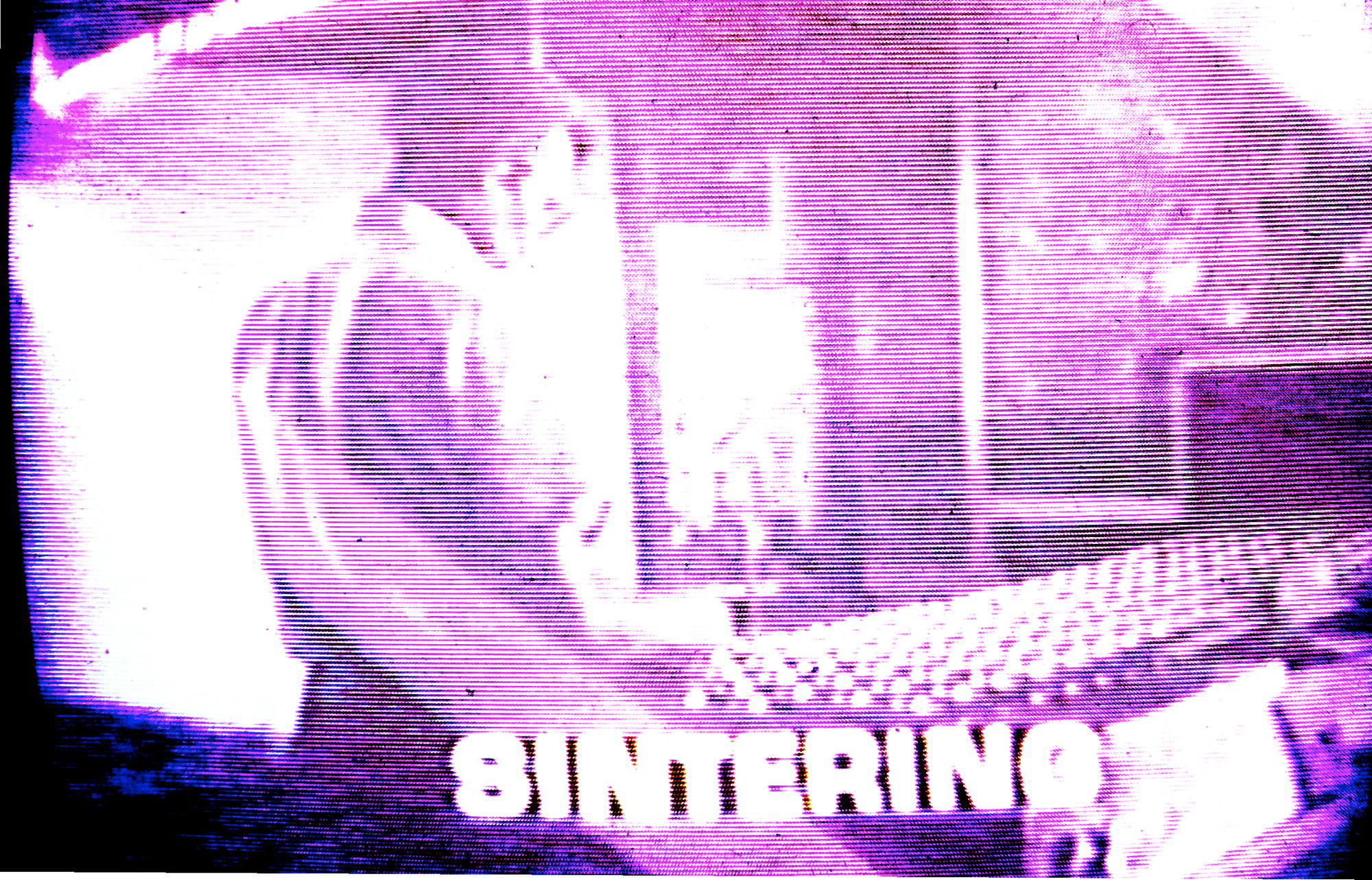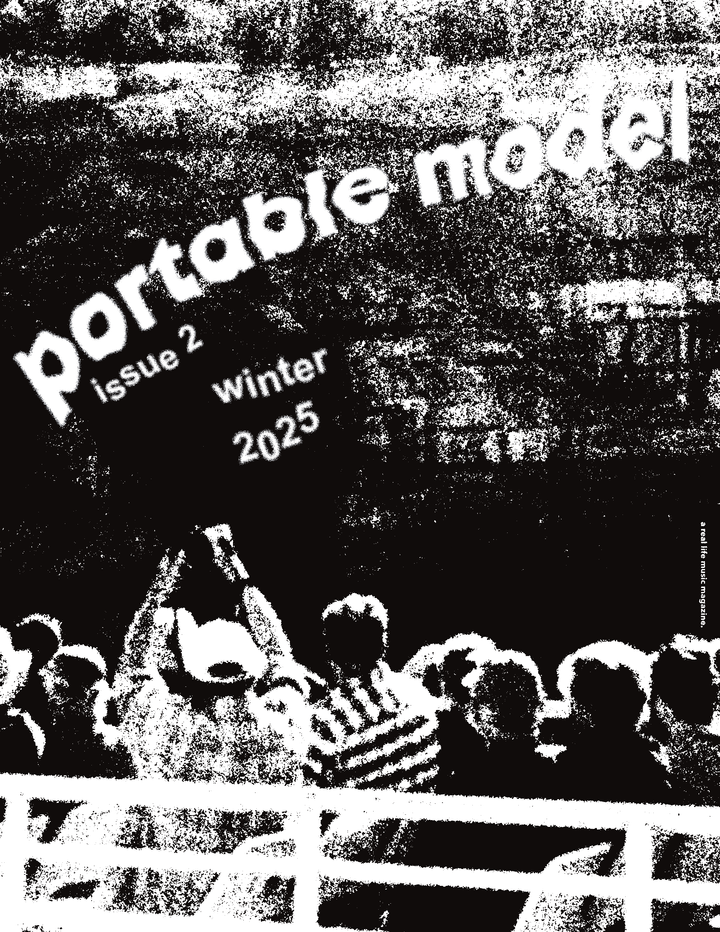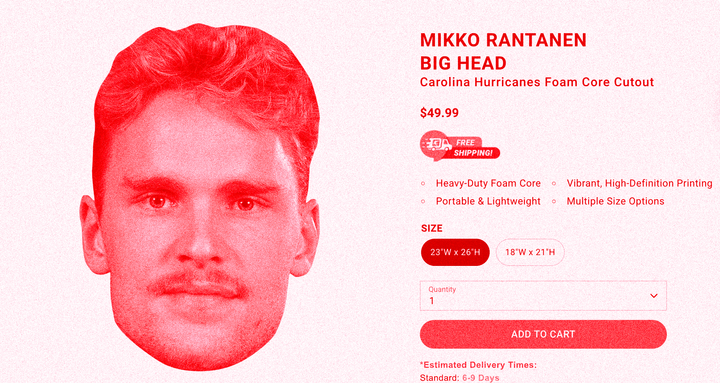12 Different Tooling Operations: An Essay on Work
and also on my family, powder metallurgy, a painting of some lions, hobbies and other things essential to being alive.

Both of my paternal grandparents have passed away. First, my grandfather from lung cancer almost exactly 8 years ago. Despite quitting smoking when I was pretty young, I still envision him with a partially crushed box of Marlboros in the breast pocket of his button up shirt. In many of my memories he's sitting at the kitchen table with a mug of coffee featuring the name of a calculator manufacturer on it.
My grandmother died about six years later in the fall of 2021. In my memory she's looking out the window pointing out a bird by name or fretting over how she should have picked up something at the store. Usually these memories of my grandparents are parallel. My grandpa taught me that drinking coffee looks cool. My grandma taught me to like tea. It's tough to remember them without each other.
As my aunt and uncle prepared to sell the house my grandparents lived in for my entire life, I drove up to Connecticut take anything I might want and do some minimal helping with the clean out. I loved that house and I ended up with all kinds of things– a small cabinet that used to live in their entryway, that mug I always picture my grandpa with, a Kitchen Aid mixer, a framed print of lions that hung in the office, and something like 400 old slides. About half of the slides are family photos from around the midwest starting I've used a decent amount of the non-identifying photos from that bunch as thumbnails for this newsletter as a sort of penance for being tasked with the digitizing and disseminating to my extended family. The other half are photos from Hennepin Technical College– or Hennepin Technical Center as it was known at the time of the creation of most of these photos– in suburban Minneapolis where my grandfather taught a course on Powder Metallurgy. It's the course my father and his brother, my godfather, both took to then go into the PM industry.
For as long as I can remember, when people asked what my dad does, I've said, "my dad works for a powder metal tooling corporation. They make tools that go into making parts for cars and airplanes and stuff like that." I'm only like 60% sure that's accurate, but it's what I've always said. My dad has worked at the same place for something like 35 years and when I was a kid he would bring home these schematics and plans and would work on them at our kitchen table. He called it his homework and he'd do math on what feels like an ancient graphing calculator. It was incomprehensible to me then, just as it probably would be now. I have a few memories of being in the machine shop, but mostly it's just the sound and the heat and the burning metallic smell that stick in my head. As I got older, he got a job within the company more in sales and leading teams instead of working in the shop like he did when I was really young.

In the seven years since my grandfather passed away, I've spent a lot more time talking to my dad about his job and the concept of work altogether. I got my college diploma on the day of my 21st birthday after graduating in the spring and remember having a real panic about what I wanted to do with my life while we were having margaritas at the Chili's near my parents' house. He told me it'd be fine. I was so young. He was right, but it's hard to know that when you've never been older.
I've spent hours looking at these slides full of guys with 70s haircuts and machines I know nothing about– except the one that says 20 TON PRESS on the cardboard, I guess, but powder metal is kind of all about presses so that feels a little unspecific. I sit and look through them thinking about how much of my grandfather's life I never could know, even if he was alive. I don't know that he took the pictures. My dad says some of the dates are prior to when he would have been working at Hennepin Technical College and some look like informational slides from a presentation. He thinks the guy who hired my grandpa might have taken some of them. It doesn't really matter, though.



I think about work all the time. Not my day job, of course. I think about that for the 8 hours a day I get paid to do it 5 days a week and when I realize on a Sunday night that I forgot to submit my timesheet on Friday. But I think about the rest of it– the stuff you probably know me to do if you read this newsletter– all the time. I was in a sort of constant panic for a while because it felt like I was investing all this time into something that didn't have a point. It just brought me to constant questioning of myself.
Should I want to professionalize writing more than this? Should I pursue trying to do more interviews for money? Should I try to have a, uh, career? As a music writer? That kind of stuff.
But when that happens I think about the one time my friend Matt told me that I don't actually have to monetize my passions. As obvious as it might seem, it was what I needed to hear in that moment while I vented on Twitter. He was definitely right, too, but every once in a while that guiding light flickers when I think about how many press emails I get. Those people treat me like a serious option for whatever unapologetically personal, sprawling, genre bending band they're promoting this month! Maybe I could be a serious option!
The thing is, though, you also have to want to actually follow through, so the questions and uncertainty about writing mostly just collapse there and I return to my senses.

I think the place that comes from is rooted so deeply in what I thought jobs were as a kid– that impenetrable idea of Career. I'd think about how my mom and dad have had these stable jobs forever and about how I don't feel a sense of real purpose toward creating a career. My dad didn't have much of a choice– the story goes that my grandpa told him he had to move out of the house or go to the technical college his dad worked at, so he picked the technical college. It worked out.
It feels like people older have this sense of career that so many people now don't get to experience. In the culture broadly, it's often presented as shameful that young people don't get it– like it's our fault for expecting more from our jobs or for being unloyal or whatever. In my head, the guys in those slides I found in my grandpa's office have gone on to work for the same companies for 40 years. Their kids maybe did, too.
When I actually talk to my dad about his career, though, the reality doesn't really match my perspective of what stable career is. His career doesn't really seem to be the norm even amongst people in his industry that are around his age. His good luck with a long term career at the same company– which is not free from doubts on his end– is not the rule. Plants have closed, jobs were lost, the auto industry isn't what it used to be. The guys in those slides and their hypothetical children just as easily might have lost huge amounts of their retirement funds in the financial crisis. The downfall of American industry didn't just start.
As a person who is mostly unsure of my future still, I consider myself lucky to have a dad who knows his path doesn't exist anymore. It's been formative to my worldview that I've watched my dad get pissed that the nearing retirement union guys are willing to sell the young guys down the river to improve their short term interests. It's even more formative to hear him say that work is not the only thing to be concerned about.

I asked my dad a while back when he thought he might retire and if he's nervous about knowing what to do with himself if he's not working anymore. His answers were (1) as soon as he can and (2) hell no. My dad's always had hobbies and interests that stretch far outside his job, so it makes sense. The things I do– my newsletter, any zine I make, music writing, even podcasting– are closer to my dad's model trains and steam locomotive magazines and stained glass than I always appreciate. To remember that makes me feel closer to my grandfather, too. His obituary describes him as, "a lover of all things steam-powered, especially locomotives, and was an accomplished HO scale modeler. An avid reader, amateur historian, and backyard scientist, he quenched his thirst for knowledge broadly and deeply."
I think part of what fascinates me about the slides is they give me a new perspective on the person my grandfather was– and parts of who my dad and my uncle are– through photos of a place he spent time. They're context like old family photos are context. Even if you don't know whose house is in the photos or whose dog or wedding or giant 60s sedan you're looking at, that's someone's life. You feel closer to a whole experience of your loved ones because you get that.
And thinking of my grandfather as someone with a career who went on to teach other people skills to have careers of their own doesn't take away from the things I knew him to do. In fact, it makes me feel less concerned with the impulse and pressure to professionalize the things I like to do when I remember that the jobs my beloved hobbyist family members had aren't just concepts of leaving in the morning and coming home in the evening like when I was a kid.

Worrying about whether I'm broken for not wanting to combine my interests and my source of income is futile. You can do both and be remembered for both. Hell, the guy that hired my grandpa to work at the place in all these photos– the one my dad thinks may have taken some of these photos– painted the framed print of lions that's sitting in my bedroom right now.


Miranda Reinert is a (usually) music adjacent writer, zine maker, podcaster and law school drop out based in Philadelphia. Follow me on Twitter to hear more about other people's newsletters: @mirandareinert. You may also send me small bits of money at @miranda-reinert on venmo if you want. As always, thanks for reading!



Comments ()